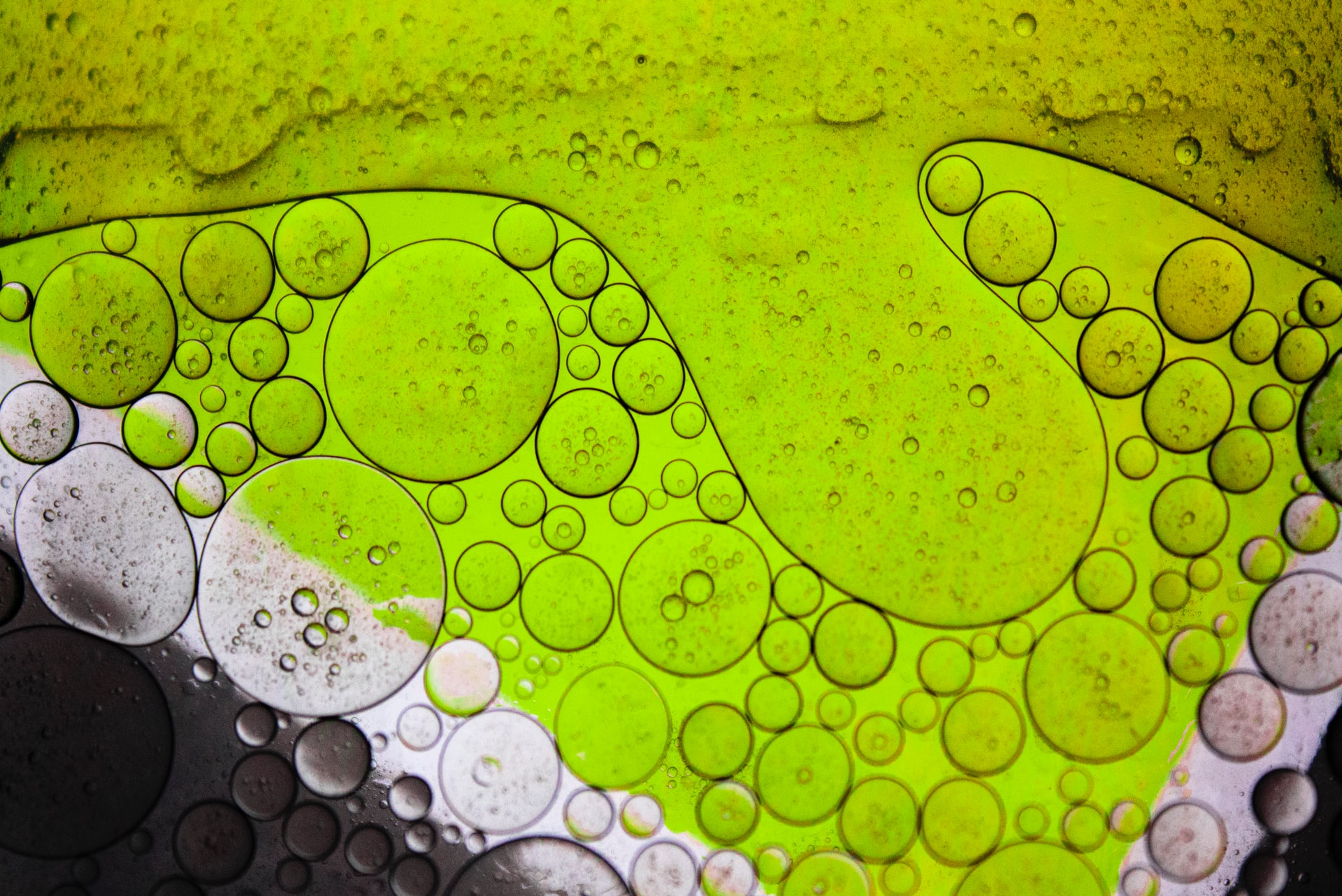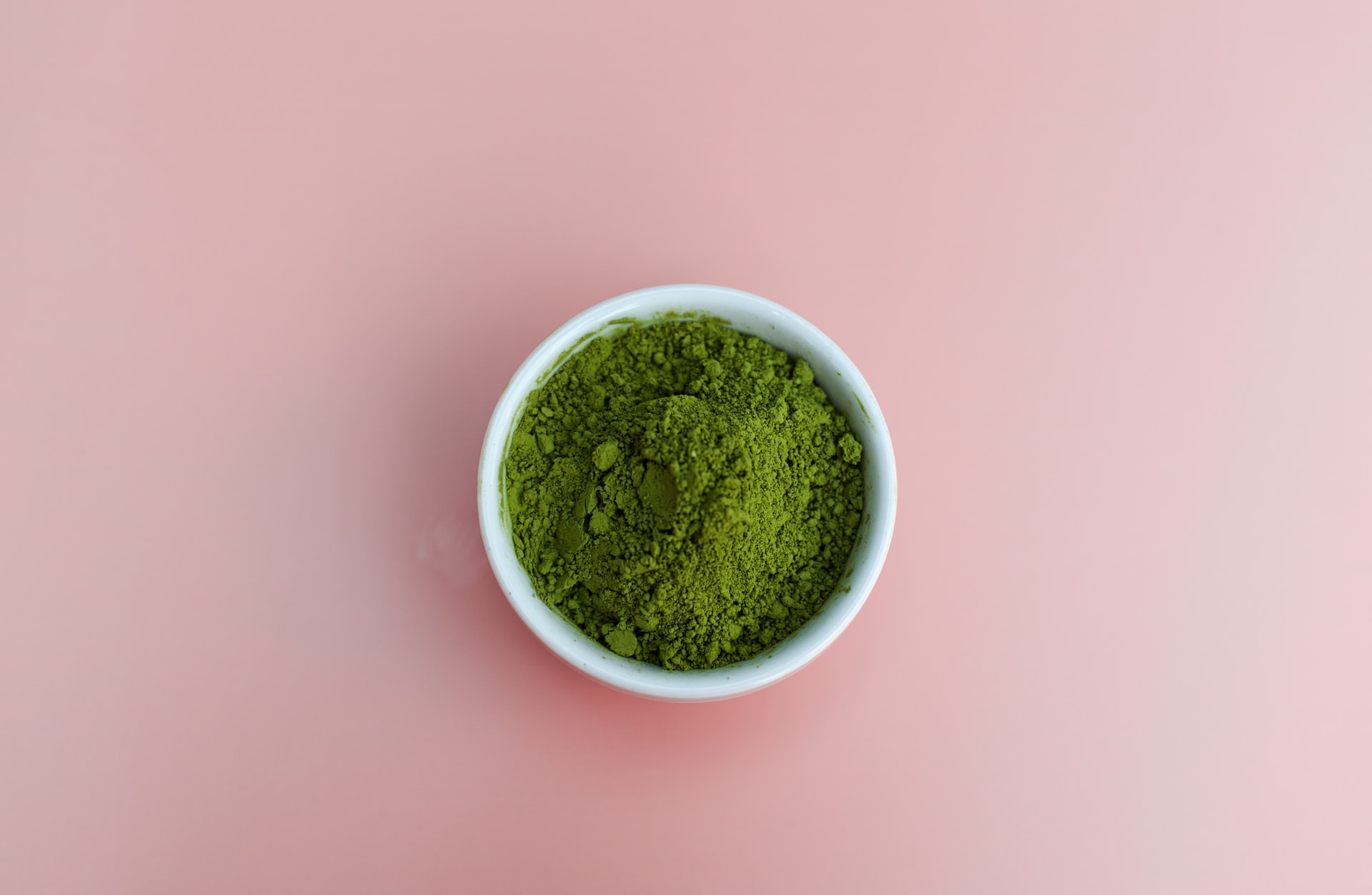Chlorella is a single-celled, green freshwater algae. Due to its hard cell wall, it should be taken as a supplement.
Below are some Health benefits:
Super Food
Chlorella features a tremendous nutritional profile.
Protein: chlorella contains 50-60% of protein. It contains all nine essential amino acids. For those who are vegan or vegetarian, chlorella may be a good source to include in the diet.
Vitamin B12: Some chlorella varieties also contain Vitamin B12. Vitamin B12 is especially needed in vegetarians. Vitamin B12 deficiency could lead to anemia, paresthesia, fatigue, nerve damage.
Iron: Chlorella can be a good source of iron. Contingent upon the enhancement, it might give somewhere in the range of 6-40% of your everyday need. It's likewise an incredible source of L-ascorbic acid (Vitamin C), which assists you with absorbing iron into the bloodstream. Due to its richness in iron, it can help avert Iron deficiency anemia.
Vitamins and Minerals: Chlorella provides small quantities of Magnesium, Zinc, Copper, Potassium, Folic acid, and B vitamins.
Omega-3 fatty acids: Just 3g of Chlorella delivers 100mg of Omega-3s. There is importance in Omega-3 fatty acids reducing serum triglyceride concentrations.
Carotenoids present in Chlorella (Zeaxanthin and Lutein) are associated with improving eye health.

Immune system support & Anti-inflammatory effects
Chlorella is a potent biological response modulator on immunity.
A randomized, double-blinded, placebo-controlled trial on Chlorella supplementation determined that there is a beneficial stimulatory effect on short-term chlorella supplements which boosts NK cell activity and produces interferon-у and interleukin-12 furthermore interleukin-1β, Th-1 cell-induced cytokines in healthy individuals.
Interferon-у has a key role in the activation of cellular immunity and stimulation of antitumor immune response. It has anti-viral, antitumor, and immunomodulatory roles. It also triggers the activation of the immune response and elimination of pathogens. Interferon-у is regulated by natural killer (NK) cells and natural killer T cells.
In conclusion, Chlorella plays a key role in stimulating and strengthening the immune system. Chlorella is additionally protective against cellular damage.
Improvement of Cholesterol levels
Cholesterol is a lipid that is needed in our body for multiple functions. However, an excessive amount of cholesterol can increase the probability of getting heart attacks and stroke. A build-up of cholesterol is mainly due to eating unhealthy foods, not exercising, smoking, and excessive alcohol intake (Modifiable risk factors)
Patients with Hypercholesterolemia are usually given statins to manage their cholesterol levels. Statins work by blocking HMG CoA reductase, which is a rate-controlling enzyme in the synthesis of cholesterol. However, statins have side effects such as Hepatotoxicity and Myalgia.
Studies show that daily consumption of Chlorella supplements reduces serum lipid levels, such as triglycerides and total cholesterol. The impact of Chlorella on serum lipids may be brought about by the suppression of intestinal lipid absorption attributable to increased levels of carotenoids.
Chlorella should be included in the recommendation for a healthy heart.
Antioxidant Therapy
Chlorella contains several components that are considered antioxidants, including chlorophyll, vitamin C, beta carotene, lycopene, and lutein.
Beta carotene may also assist the body in suppressing the consequences of premature aging caused by UV rays.
Chlorella contains β-1,3 glucan that is an active immunostimulatory effect, a free radical scavenger, and a reducer of blood lipids.
Anticancer properties
Chlorella contains high amounts of chlorophyll, which is a naturally occurring pigment in plants and algae. Chlorophylls and their subsidiaries have been shown to display biological activity whereby they show anticancer properties in their ability to bind cancer-causing hydrophobic compounds such as polycyclic aromatic hydrocarbons, heterocyclic amines, and aflatoxins.
Chlorella has strong antiproliferative effects on human colon cancer cells, including induction of apoptosis.
Blood pressure control
High blood pressure causes the heart to pump harder and work more, this leads to serious long-term effects if not controlled.
A double-blind experiment was conducted with eighty subjects who had borderline hypertension to investigate whether Chlorella is useful in controlling blood pressure. Results showed that Chlorella significantly decreased high-normal blood pressure and borderline hypertension and could be a preventative supplement for developing hypertension.
Another study showed that Chlorella supplements reduce arterial stiffness.
Blood sugar control
Insulin is a hormone that is synthesized within the pancreas, it controls the quantity of glucose within the bloodstream. It also helps store glucose in the liver, fat cells, and muscles.
Insulin binds to insulin receptors (tyrosine kinase activity), inducing glucose uptake into insulin-dependent tissue and gene transcription. Glucose is the main regulator of insulin release.
A study was performed on 17 subjects with high-risk factors for lifestyle-related diseases and 17 healthy subjects over 16 weeks. Researchers conducted blood tests and analyzed genetic profiles. Their outcomes inferred that Chlorella consumption resulted in noticeable reductions in body fat percentage, serum total cholesterol, and fasting blood sugar levels. Gene expression changes involved in fat metabolism and insulin signaling pathways that were affected by Chlorella intake, variations in genes were associated with the uptake of glucose, indicating that the activation of insulin signaling pathways could be the justification for hypoglycemia effects.
Chlorella supplements could be considered as an adjunct therapy to decrease weight and improve glycemic control and reduce C-reactive protein as well as improve liver function in patients with Non-alcoholic fatty liver disease.
Chlorella ingestion may be useful in preventing or amending the course of type 2 diabetes. Gene expression analysis showed that Resistin, an insulin resistance inducer was markedly reduced in patients taking Chlorella.
Reducing the risk of Anemia in Pregnant Women.
During pregnancy, the mother can develop anemia, this is because the mother is making double the amount of iron to give more blood supply to the baby. Severe anemia during pregnancy can increase the risk of premature birth, low birth weight.
A study was performed to show the preventative impacts of Chlorella supplement on pregnancy anemia and pregnancy-induced hypertension. A total of 70 pregnant women were used in the study (38 in a control group and 32 in the Chlorella group). Chlorella was supplemented daily from the 12th to 18th week of gestation until delivery with 6g of Chlorella. They concluded in patients taking Chlorella, rates of proteinuria and edema, signs of Pregnancy-induced hypertension were fundamentally lower during the third trimester.
Chlorella supplementation reduces the risk of pregnancy-associated anemia, proteinuria, and edema.
The supplement may be a good source of natural folate (to prevent neural tube defects), vitamin B12, and iron for pregnant women.
Promotes Eye health
Chlorella contains Lutein (Carotenoid), which is beneficial to the eye. Lutein is known to improve age-related macular degeneration which causes blindness and vision impairment.
Improves Digestion & promoting gut health
Chlorella is a good dietary source of Fiber that affects lymphatic cholesterol and triglyceride absorption by increasing gut viscosity, altering the composition of the bile acid pool, and producing fermentation products in the intestine.
Helps fight infection by increasing Salivary IgA
IgA is an immunoglobulin that prevents the attachment of bacteria and viruses to mucous membranes. It is usually released into secretions (tears, saliva, mucus).
A study was conducted to evaluate the effects of chlorella supplements on mucosal immune function. Fifteen men took 30 chlorella tablets per day for 4 weeks and saliva samples were taken. They concluded that 4-week ingestion of chlorella supplement increases salivary IgA secretion and improves mucosal immune function in humans.
Aiding in Management of Chronic Hepatitis C
Hepatitis C is an infectious disease caused by the Hepatitis C virus that targets the liver. Transmission is primarily due to blood transfusion. It may progress to Liver Cirrhosis or Carcinoma. Signs and symptoms of hepatitis are episodes of fever, jaundice, increased ALT, and AST.
A study was performed to evaluate the efficacy of Chlorella in 18 adult patients that were chronically infected with the hepatitis C virus. Chlorella supplementation was well tolerated in patients with HVC and showed a significant decrease in ALT liver enzyme levels and reduced liver inflammation.
Anti-aging properties
Chlorella may have anti-aging effects:
Removal of free radicals (high antioxidant content)
Inhibits telomere shortening (stress-induced DNA damage)
Cells age when the telomeres (end of chromosomes) are shortened. This occurs each time the cells undergo division and replicate (DNA synthesis). Therefore, increased telomerase activity helps telomere production and builds the life expectancy of cells.
Skin benefits
Acne vulgaris is a chronic inflammatory disease and has a multifactorial etiology.
Studies show that Chlorella has an inhibitory action on Propionibacterium acnes by inhibiting lipase activity. P. acnes is a Gram-positive bacterium, it causes skin acne by releasing lipase that produces fatty acids by digesting sebum and causing inflammation.
Spirulina and Chlorella can be taken together. The benefits are uncountable with a vast amount of nutrients and minerals. They complement each other and promote healthy living. Adding both Spirulina and Chlorella to your diet can boost immunity and potentially help attenuate a disease course. People usually experience increased body energy due to the high nutrients in both Spirulina and Chlorella.
References
- Kwak JH, Baek SH, Woo Y, Han JK, Kim BG, Kim OY, Lee JH. Beneficial immunostimulatory effect of short-term Chlorella supplementation: enhancement of natural killer cell activity and early inflammatory response (randomized, double-blinded, placebo-controlled trial). Nutr J. 2012 Jul 31;11:53. doi: 10.1186/1475-2891-11-53. PMID: 22849818; PMCID: PMC3511195.
- Jorgovanovic, D., Song, M., Wang, L. et al. Roles of IFN-γ in tumor progression and regression: a review. Biomark Res 8, 49 (2020). https://doi.org/10.1186/s40364-020-00228-x
- Ryu, N.H., Lim, Y., Park, J.E. et al. Impact of daily Chlorella consumption on serum lipid and carotenoid profiles in mildly hypercholesterolemic adults: a double-blinded, randomized, placebo-controlled study. Nutr J 13, 57 (2014). https://doi.org/10.1186/1475-2891-13-57
- Lordan, S., Ross, R. P., & Stanton, C. (2011). Marine bioactives as functional food ingredients: potential to reduce the incidence of chronic diseases. Marine drugs, 9(6), 1056–1100. https://doi.org/10.3390/md9061056
- Shimada M, Hasegawa T, Nishimura C, Kan H, Kanno T, Nakamura T, Matsubayashi T. Anti-hypertensive effect of gamma-aminobutyric acid (GABA)-rich Chlorella on high-normal blood pressure and borderline hypertension in a placebo-controlled double-blind study. Clin Exp Hypertens. 2009 Jun;31(4):342-54. doi: 10.1080/10641960902977908. PMID: 19811362.
- Otsuki T, Shimizu K, Iemitsu M, Kono I. Multicomponent supplement containing Chlorella decreases arterial stiffness in healthy young men. J Clin Biochem Nutr. 2013 Nov;53(3):166-9. doi: 10.3164/jcbn.13-51. Epub 2013 Oct 3. PMID: 24249971; PMCID: PMC3818271.
- Mizoguchi T, Takehara I, Masuzawa T, Saito T, Naoki Y. Nutrigenomic studies of effects of Chlorella on subjects with high-risk factors for lifestyle-related disease. J Med Food. 2008 Sep;11(3):395-404. doi: 10.1089/jmf.2006.0180. PMID: 18800884.
- Ebrahimi-Mameghani M, Sadeghi Z, Abbasalizad Farhangi M, Vaghef-Mehrabany E, Aliashrafi S. Glucose homeostasis, insulin resistance and inflammatory biomarkers in patients with non-alcoholic fatty liver disease: Beneficial effects of supplementation with microalgae Chlorella vulgaris: A double-blind placebo-controlled randomized clinical trial. Clin Nutr. 2017 Aug;36(4):1001-1006. doi: 10.1016/j.clnu.2016.07.004. Epub 2016 Jul 19. PMID: 27475283.
- Itakura H, Kobayashi M, Nakamura S. Chlorella ingestion suppresses resistin gene expression in peripheral blood cells of borderline diabetics. Clin Nutr ESPEN. 2015 Jun;10(3):e95-e101. doi: 10.1016/j.clnesp.2015.04.002. Epub 2015 May 21. PMID: 28531388.
- Nakano, S., Takekoshi, H. & Nakano, M. Chlorella pyrenoidosa Supplementation Reduces the Risk of Anemia, Proteinuria, and Edema in Pregnant Women. Plant Foods Hum Nutr 65, 25–30 (2010). https://doi.org/10.1007/s11130-009-0145-9
- Otsuki T, Shimizu K, Iemitsu M, Kono I. Salivary secretory immunoglobulin A secretion increases after 4-weeks ingestion of chlorella-derived multicomponent supplement in humans: a randomized cross over study. Nutr J. 2011 Sep 9;10:91. doi: 10.1186/1475-2891-10-91. PMID: 21906314; PMCID: PMC3182968.
- Azocar J, Diaz A. Efficacy and safety of Chlorella supplementation in adults with chronic hepatitis C virus infection. World J Gastroenterol. 2013 Feb 21;19(7):1085-90. doi: 10.3748/wjg.v19.i7.1085. PMID: 23467073; PMCID: PMC3581996.
- Makpol S, Yaacob N, Zainuddin A, Yusof YA, Ngah WZ. Chlorella vulgaris modulates hydrogen peroxide-induced DNA damage and telomere shortening of human fibroblasts derived from different aged individuals. Afr J Tradit Complement Altern Med. 2009 Jul 3;6(4):560-72. doi: 10.4314/ajtcam.v6i4.57210. PMID: 20606778; PMCID: PMC2816465.
- Sibi G. Inhibition of lipase and inflammatory mediators by Chlorella lipid extracts for antiacne treatment. J Adv Pharm Technol Res. 2015 Jan-Mar;6(1):7-12. doi: 10.4103/2231-4040.150364. PMID: 25709963; PMCID: PMC4330611.



